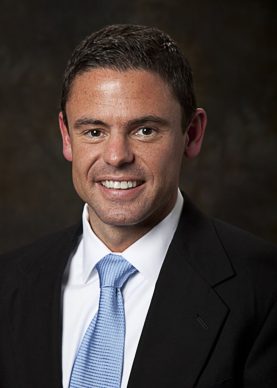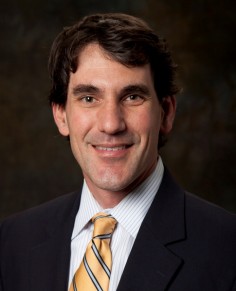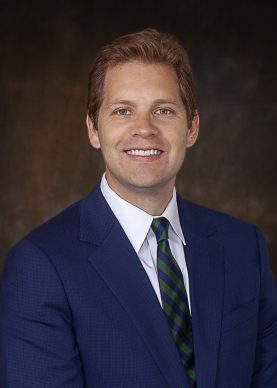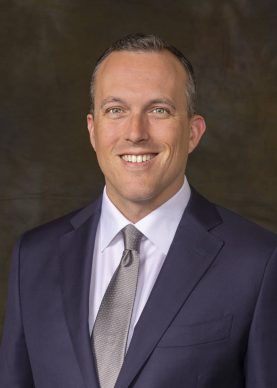Diagnosis and Treatment of Knee Arthritis in Wake County
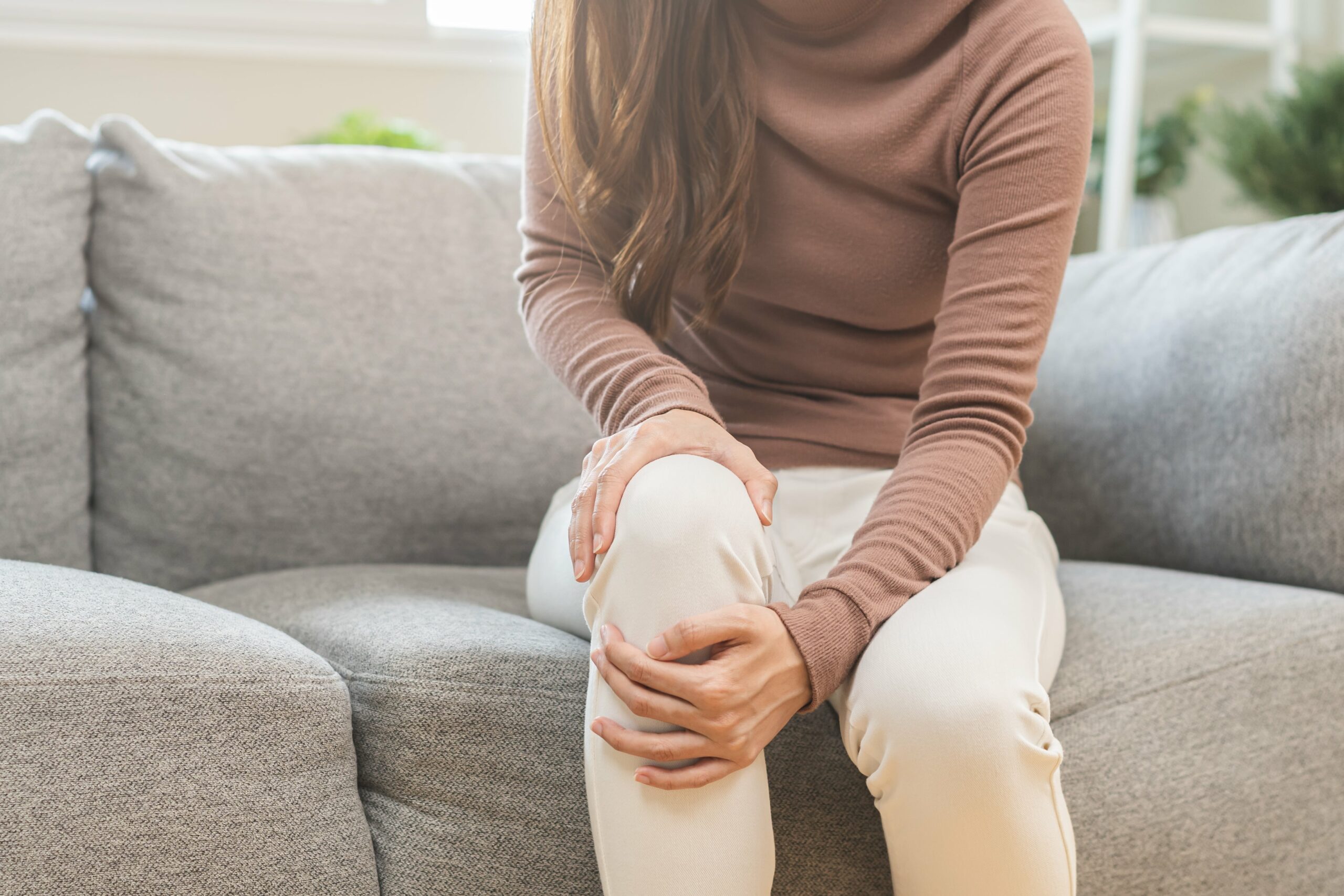
What is Knee Arthritis?
Arthritis is the inflammation of one or more of the joints of the body. The most common types of knee arthritis are osteoarthritis and rheumatoid arthritis, but there are more than 100 different forms of arthritis that can affect a variety of joints in the body. Arthritis is especially common in the knee.
The knee is the largest and strongest joint in the body. The knee joint is formed by the upper leg bone or thighbone (femur) and the lower leg bone or shinbone (tibia). The patella (kneecap) sits in front of the knee joint. The ends of the bones in the knee joint are covered with cartilage – a smooth, slick substance that protects and cushions the bones as the knee is bent and straightened.

Primary Types of Arthritis of the Knee
- Osteoarthritis: A degenerative “wear and tear” type of arthritis where the knee joint gradually wears away. This causes bone to rub on bone and can produce bone spurs. Osteoarthritis develops slowly, and the pain increases over time.
- Rheumatoid arthritis: A chronic disease that attacks multiple joints throughout the body. It can affect the same joint on both sides of the body. The synovial membrane that lines the knee joint begins to swell, which results in pain and stiffness. Rheumatoid arthritis is an autoimmune disease, which means that the immune system attacks the body’s own tissues and damages the cartilage and ligaments while softening the bone.
- Post-traumatic arthritis: A form of arthritis that develops after an injury to the knee, such as a broken bone, meniscal tear, or ligament injury. These injuries can cause instability and additional wear of the knee joint that can lead to arthritis over time.

Causes of Knee Arthritis
Arthritis has no single specific cause, but there are certain factors that may make you more likely to develop the disease, including:
- Increasing age
- Family history of arthritis
- Previous injury to the knee joint
- Obesity
Symptoms of Knee Arthritis
The most common symptoms of knee arthritis are pain and inflammation. Pain and swelling may be worse in the morning or after sitting or resting. Vigorous activity may cause pain to flare up. There are many symptoms those with knee arthritis may notice, including the following:
- The joint may become stiff and swollen, making it difficult to bend and straighten the knee
- Loose fragments of cartilage and other tissue can interfere with the smooth motion of joints. The knee may “lock” or “stick” during movement. It may creak, click, snap, or make a grinding noise (crepitus)
- Pain may cause a feeling of weakness or buckling in the knee
- Many people with arthritis note increased joint pain with rainy weather
- Knee arthritis can make it hard to do many everyday activities, such as walking or climbing stairs
How is Knee Arthritis Diagnosed?
When diagnosing arthritis of the knee, your doctor will conduct a physical examination. During the exam, the physician will check if the knee joint is red or sore and see if there are other signs of a knee injury. They will move the knee around to check your range of motion. If the knee feels loose, the joint may be unstable. The doctor will also examine the way you walk. In some cases, X-rays, MRIs, blood tests, or joint aspiration may be required to diagnose arthritis of the knee.
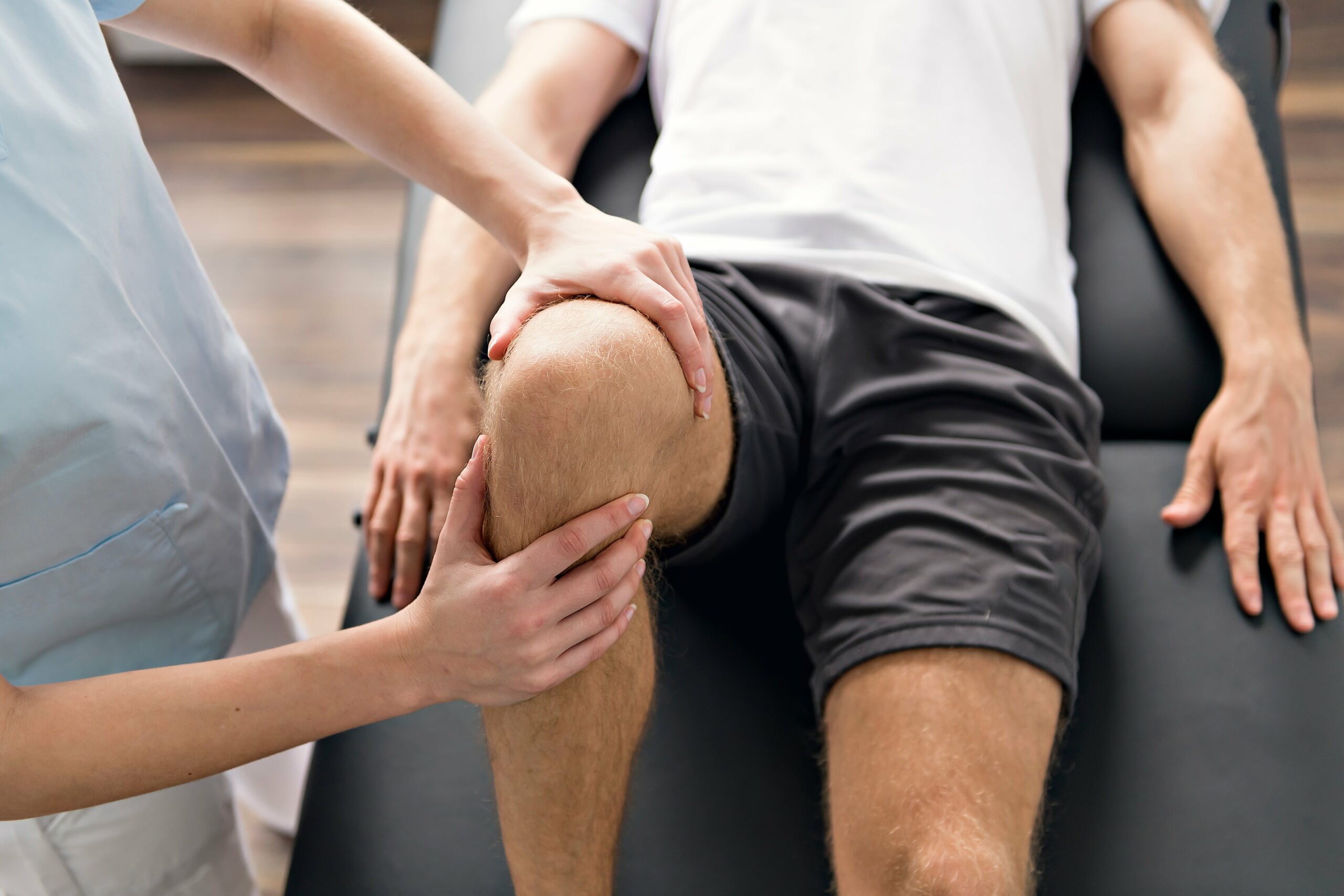
Treatment Options for Knee Arthritis at Raleigh Orthopaedic
There is no cure for arthritis in the knee; however there are a number of treatment options that can help relieve pain and improve mobility. Nonsurgical treatment options for knee arthritis include:
- Activity minimization such as switching from high-impact activity to low-impact activity
- Weight loss
- Physical therapy
- Assistive devices such as a cane, wearing a brace, or shoe inserts. A brace assists with stability and function by shifting weight away from the affected portion of the knee or supporting the entire knee load.
- Medications such as non-steroidal anti-inflammatories like ibuprofen or naproxen
- Corticosteroid (cortisone) injections
- Viscosupplementation, which involves injecting substances into the joint to improve the quality of the joint fluid
If nonsurgical treatment options for knee arthritis symptoms fail to provide pain relief, surgery may be recommended by one of Raleigh Orthopaedic’s total joint replacement surgeons. Knee replacement surgery is a procedure where the damaged cartilage and bone are removed and replaced by new artificial joint surfaces to restore the function of the knee. The goal is to relieve the pain of arthritis and make it possible to perform daily activities more easily.

Recovery from Knee Replacement Surgery
Recovery from a knee replacement usually takes a full year, however, you should be able to resume most activities after six weeks. Recovery time depends on how active you were before surgery, your age, and any other health conditions you may have. It is important to ice your knee several times a day for twenty minutes to reduce swelling. Keep the knee above the heart level as often as possible using pillows and cushions. Home exercises and physical therapy will also be necessary during the recovery process.
Can Knee Arthritis Be Prevented?
There is no way to fully prevent arthritis, however, there are steps you can take to reduce your risk. Maintaining a healthy weight is very important in preventing knee arthritis. Being overweight puts added stress on the knee joints, which can cause the cartilage to wear away. Exercising is a great way to prevent arthritis, as strengthening the muscle joints reduces risk. Eating a healthy diet that includes omega-3 fatty acids and vitamin D has also been shown to reduce the risk of arthritis.

Learn More About Total Joint Replacement at Raleigh Orthopaedic
At Raleigh Orthopaedic, your well-being is important to us. We are proud to work with patients in and around Wake County, helping them live and move more comfortably following the diagnosis of an orthopedic condition or injury. Our providers create comprehensive treatment plans for each patient, making sure that any questions you have are answered along the way. To schedule an appointment with an orthopedic surgeon near you, please give us a call or book online today!

